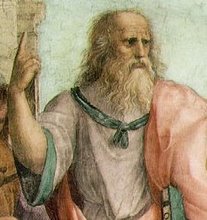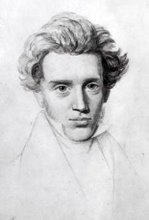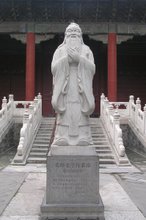
Lifespan: 585 BC - 525 BC
Primary Base of Operations: Greek city of Miletos, on the coast of Asia Minor (modern day Turkey)
Schools of Thought: Milesian School, Ionians, Naturalism
Other Occupations: Cosmologist
Teacher: Anaximander
Primary Base of Operations: Greek city of Miletos, on the coast of Asia Minor (modern day Turkey)
Schools of Thought: Milesian School, Ionians, Naturalism
Other Occupations: Cosmologist
Teacher: Anaximander
- held that the air, with its variety of contents, its universal presence, its vague associations in popular fancy with the phenomena of life and growth, is the source of all that exists. Everything is air at different degrees of density, and under the influence of heat, which expands, and of cold, which contracts its volume, it gives rise to the several phases of existence. (It was actually "aer" which he believed to be the common charecteristic between all things. "Aer" is the Greek word for a mist rather than just pure air.)
- uses his principles to account for various natural phenomena. Lightning and thunder result from wind breaking out of clouds; rainbows are the result of the rays of the sun falling on clouds; earthquakes are caused by the cracking of the earth when it dries out after being moistened by rains. He gives an essentially correct account of hail as frozen rainwater.
- uses his principles to account for various natural phenomena. Lightning and thunder result from wind breaking out of clouds; rainbows are the result of the rays of the sun falling on clouds; earthquakes are caused by the cracking of the earth when it dries out after being moistened by rains. He gives an essentially correct account of hail as frozen rainwater.





